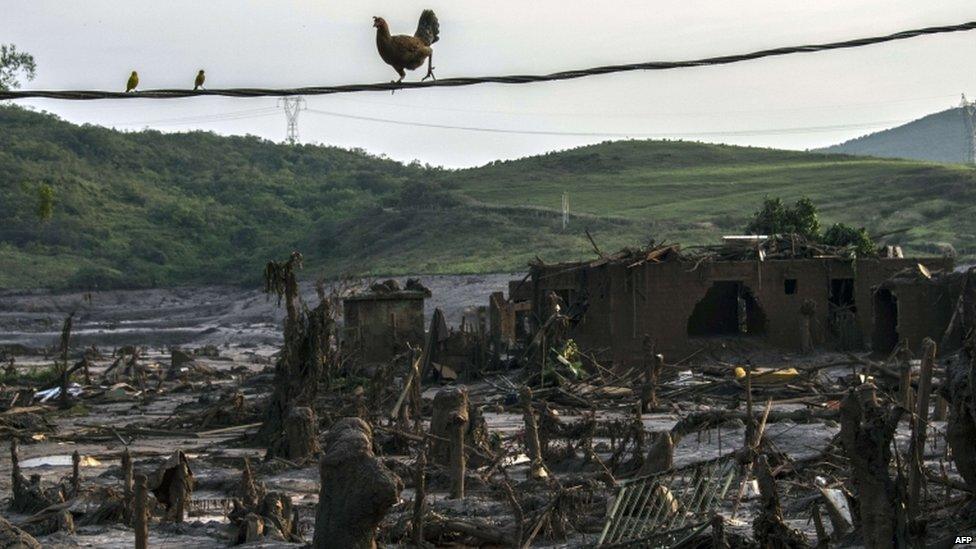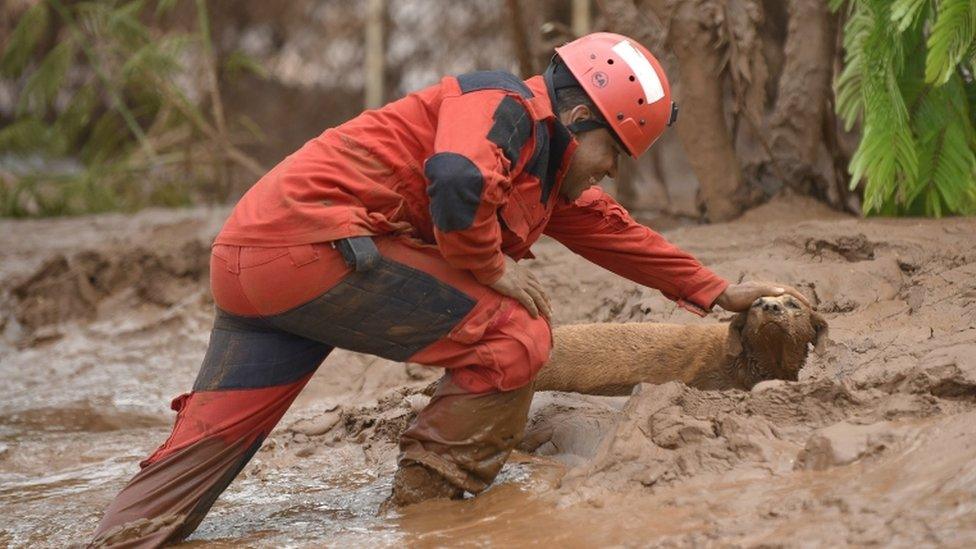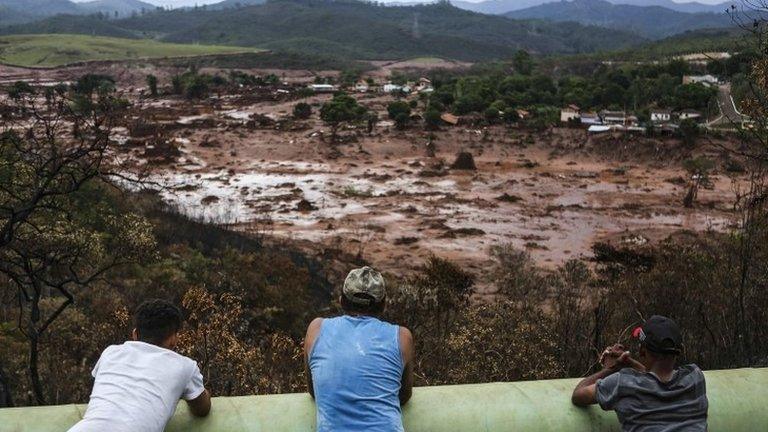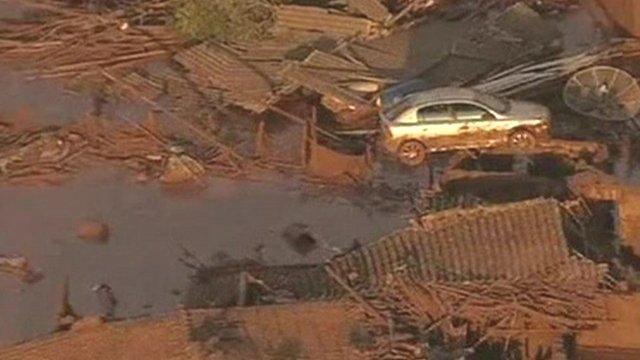Brazil mining company Samarco suspended over dams burst
- Published

Despite the work of more than 500 rescuers, no-one has been pulled alive from the mud in Bento Rodrigues
Brazilian mining company Samarco has had its mining licence suspended after two dams it used to hold waste water from iron ore collapsed.
The collapse caused rivers of red mud to descend on the south-eastern village of Bento Rodrigues on Thursday.
Three people died and another 24 are missing presumed dead.
The company will only be allowed to operate in the region again once the authorities are satisfied it is meeting the required safety standards.
"The company will need to make a number of changes before we allow them to begin mining again," said Minas Gerais state deputy environment secretary Geraldo Abreu.
Prosecutors also ordered Samarco to pay temporary compensation to the families of the victims.
The families of those confirmed dead or missing will be entitled to a monthly minimum wage worth 788 reais ($207; £137).
The mining licence was suspended on Friday, said Mr Abreu, but the measure has only now been announced.

Some 500 survivors have been placed in nearby hotels

Horses, mules and dogs got stuck in the mud, which travelled miles downstream
The mine is owned by Vale and BHP Billiton and is operated by Samarco.
It is located in Mariana, an 18th Century colonial town popular with tourists.
'Hopes fading'
More than 500 people lived in Bento Rodrigues, which lies about 7km (four miles) south of the burst dams.
But the floodwaters and mud have reached towns up to 70km away.
And there are concerns that they will contaminate drinking water in dozens of cities across the south-eastern states of Minas Gerais and Espirito Santo.
There are also fears that the iron ore residue in the mud poses a health risk.
Residents complained of not being warned once the Fundao and Santarem dams collapsed.
Many saved their lives by running to higher ground when they heard the noise of the approaching sludge.
Samarco head Ricardo Vescovi told the AFP news agency that, to the best of his knowledge, Brazilian law does not require an emergency alarm for dam failures.
The authorities had approved the company's emergency response plan, he said.
On Sunday, Minas Gerais state governor Fernando Pimentel said hope of finding survivors was fading.
- Published7 November 2015

- Published6 November 2015
